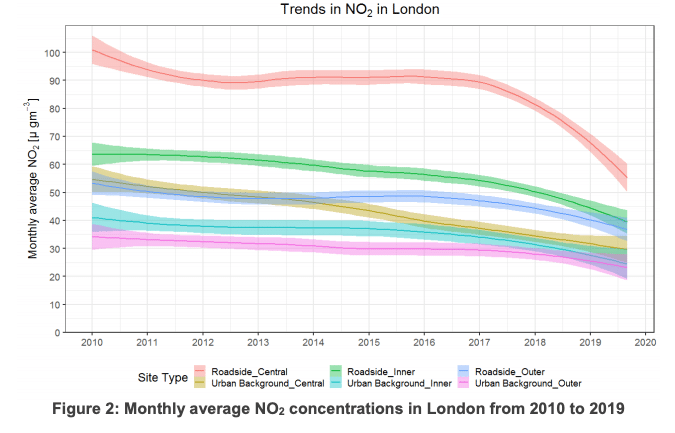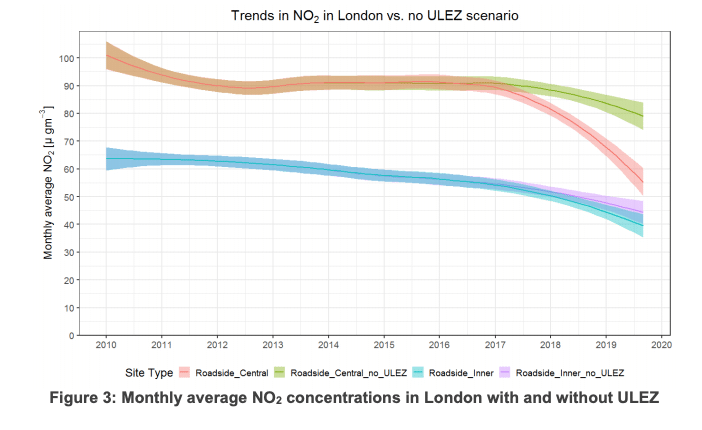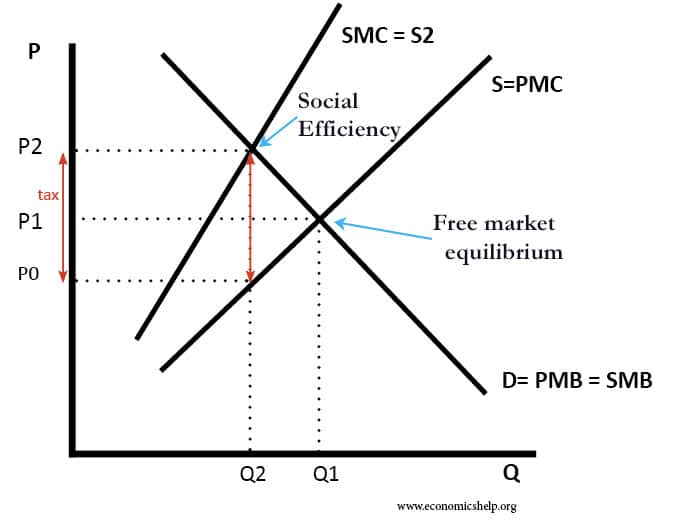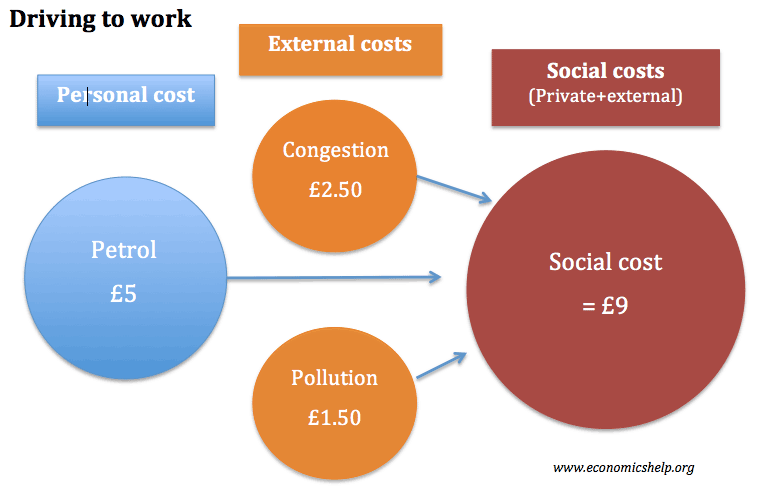Since April 2019, London has imposed a charge on diesel cars with high emissions driving into the centre of London. In October the charging area (Ultra Low emission zone ULEZ) will expand to include more of the city.
The idea is to place a financial cost on those vehicles which cause air pollution. It provides a strong incentive for drivers to shift away from higher pollution vehicles to lower emissions vehicles. The charge will raise some revenue for public transport, and the medium to long-term help reduce harmful vehicle pollution.
Pros of diesel charges (summary)
- Reduces pollution and improves air quality
- A clear incentive for consumers to switch vehicle
- Provides incentive for producers to innovate more fuel efficient vehicles (electric)
- Big benefit for those with respiratory health issues.
- Encourages consumers to consider public transport, cycling/walking. Might reduce congestion as well.
- Improved social efficiency, car uses facing the true external cost.
Improved social efficiency
It is a classic example of a Pigovian tax – a tax placed on a good which imposes an external cost to the rest of society. In this case, the external cost is pollution and the resulting health issues arising from that.
In a free market, without any tax, we can see that there would be over-consumption of diesel cars because the drivers don’t pay the full social cost.
How external costs lead to Higher social than private costs)
Incentives of £12.50 charge
The reason I wrote this post, is that it affects me personally. About five years ago, I bought a second-hand diesel (at that time people felt diesel was more environmentally friendly than petrol). Ironically, ever since I bought the diesel car (Toyota Carolla, 2015), I pay £0 road tax because the car is classed as fuel-efficient. Yet, almost as soon as I bought the car, there was a change in opinion and diesel was classed as environmentally bad because of air particulates and nitrogen dioxide emissions.
I travel into outer London about 10 times a year, often visiting friends in Barnes/Battersea Park area. Public transport is not easy and takes twice as long door to door. Public transport is also much more expensive than diesel costs. (even with 1 person in the car)
What struck me is how much the £12.50 charge make me want to get a new low emission car that doesn’t get the charge. If I drive 10 times a year, I will pay an extra £125.00 – which is actually not that much compared to the average cost of a second-hand car – £10,000. Rationally, there is a good case, to write off the £125.00 a year as a minor percentage of car costs. But, there is a big difference between paying £12.50 every time, and lump sums hidden in a big purchase. This is a classic example of behavioural economics in action. We view some charges as a big loss of utility.
We treat the £12.50 diesel charge as more painful than having to spend much more money on buying a new car. I could use a bit of mental accounting and say to myself – for the past 5 years I have saved £500 on road tax because I’ve been paying £0 – so I can use all this saved money to pay the £125 a year ULEZ charge. But, at first glance, we don’t think like this.
Also, there is an element of social pressure – you don’t like to feel you are driving a ‘high emission’ vehicle. Hybrid and electric are better than old polluting diesel.
Success of ULEZ charge in inner London

The ULEZ was implemented in April 2019 and this has seen a dramatic fall in the percentage of high emission vehicles. TFL state in Feb 2017, 39% of vehicles met the tough emission standards, this has increased to 80% (TFL)
Of course, some of this change would have occurred anyway without the charge. But, the charge (and threat of other cities following suit) has definitely spurred both producer and consumer change.

They also state there has been a 44% reduction in roadside nitrogen dioxide with the boundaries of the ULEZ. The argument is that extending the ULEZ to a wider part of London will lead to similar improvements in air quality for residents across London. This will have noticeable effects on children’s and adults health for issues like asthma.
Revenue neutral
TFL claim the project is revenue neutral – any money raised will be used for admin costs, improving public transport and improving air quality, which London citizens will benefit from.
Cons of diesel charge
- The main con is that as an owner of a diesel car, it is a bit annoying to have these extra charges, especially when at the time I thought I was buying a relatively ‘green’ car.
- The biggest downside is perhaps those on low-incomes cannot easily afford to switch vehicles and are stuck with higher charges. Buying a new electric car is an expensive one-off payment. Those on low-incomes.
- Business costs. Businesses will also face higher costs from making the transition to different vehicles. For a small business, this may be a high percentage of costs.
- Another type of criticism could be from an environmental perspective this doesn’t go far enough and the charge should be higher or even diesel banned. Also, there is a case for imposing on all fossil fuel using cars, not just old diesels.
Conclusion
Despite being out of pocket on a personal level, the economist in me is impressed by how successful this kind of charge is in changing vehicle use. The charge reduces pollution and there is a clear social benefit from the better air quality on both local and global levels.
Related



Nice work! I’m tempted to say “does not compute”! I mean to see a bigger picture amid personal inconvenience and mild frustration. I can’t help reflecting that VW et al, telling little fibs about their diesel cars’ emissions would’ve played a part in the myth of environmental friendliness. Now you have to pay on a personal level.
Anyway, thanks for an interesting article.